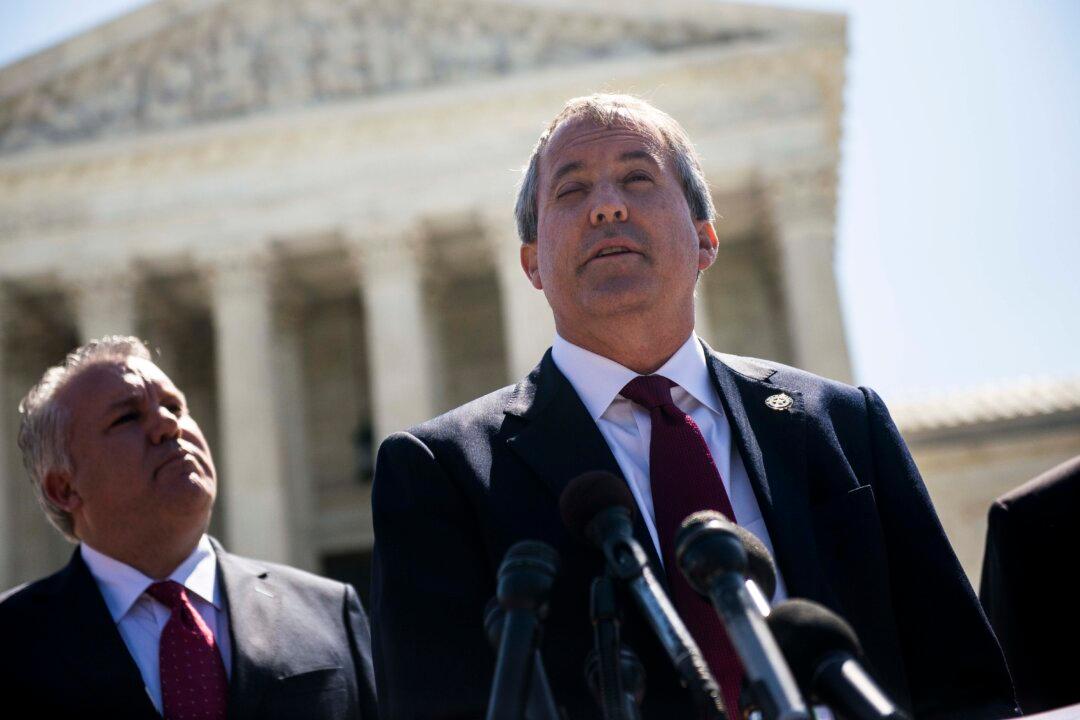The Supreme Court on Tuesday set a Dec. 10, 3 p.m., deadline for the defendants to file briefs opposing a request by the state of Texas to file an election complaint against the battleground states of Pennsylvania, Georgia, Michigan, and Wisconsin.
In an unsigned docket entered on the docket for the case, to court directed respondents to submit their arguments against the request to file a complaint and the motion for a temporary restraining order.





